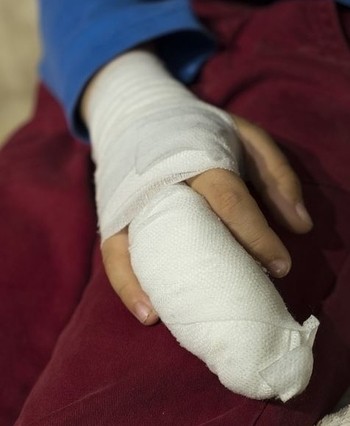
For a musician, your entire life and sanity is composed within those two appendages at the end of your arms, and if one of them breaks, it can seem like it’s the end of the world. But just because you might have a cast or splint on your hand for a few months doesn’t mean you need to stop doing what you love. Here are a few tips that will help you keep going.
Practice with Your off Hand
Unless both of your hands are broken at the same time, this could be an excellent opportunity for you to work on your instrument with your off hand. For guitarists, this can mean running your fret hand up and down some scales, or miming certain songs that you may be working on, and for pianists, this could be simply playing one half of the keyboard. The last thing when you come back from an injury is to be cold on both hands, but there is evidence that reflective practicing can help keep your skills sharp, even when you’re not playing.
Talk to a Doctor
If your instrument is your life, financially or metaphorically, the best course of action is to get it checked out immediately by an orthopedist. Professionals, like those at Town Center Orthopaedic Associates, P.C., know that your hand is composed of twenty-seven bones, many of which are tiny. Therefore, what may seem to you like a minor deal, or even what feels like simple cramping, could be indicative of something worse. If your injury worsens, consult with a healthcare professional or look for “Hand Surgeon Near Me” for personalized advice and recommendations based on your specific medical needs.
Power Through
Unless playing your instrument is particularly painful, there are several potential ways that you can continue playing despite your hand injury. For instance, placing a splint over your hand to hold the instrument can help to at least keep your body partially engaged, but be careful not to overdo it and set yourself back a couple steps. It’s better to take it slow so that you don’t end up making a bad situation even worse.
Take a Break
It sounds heretical to even suggest, but maybe what you need to excel at your craft is a little bit of a break from the constant practice and rehearsing. If you’re mostly incapacitated anyways, you might as well make the most of it by either utilizing the aforementioned “reflective practicing,” or by using this time to consider other styles of music that you will eventually want to play. Taking a mental break may reset your brain and keep it refreshed for when you can pick it back up again.
When dealing with a hand injury, it’s important to remember that eventually your hand will heal and you’ll be playing again sooner rather than later. While it may be frustrating to sit on the sidelines and watch your friends perform, a few months taking care of your body now will help prevent future problems that could affect you for the rest of your life.
